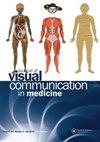如何最好地与研究参与者分享研究?一项比较漫画、通俗摘要和科学摘要的随机交叉试验
IF 0.7
Q4 RADIOLOGY, NUCLEAR MEDICINE & MEDICAL IMAGING
引用次数: 1
摘要
传统上,医疗保健研究以学术论文的形式发表,用科学语言编码,并被锁在付费墙后面——这是许多人无法访问的形式。以适当、方便的方式与参与者和公众分享研究成果,是指导研究的道德实践。基于证据的关于媒介使用的建议很少,但是科学传播建议提倡的原则可以很好地通过漫画媒介来实现。我们报告了一项在线进行的随机交叉研究,比较了参与者对漫画、传统的外行文本摘要和科学摘要的对照方法中共享的研究结果的偏好。1236名受访者阅读了所有三种摘要,并对他们最喜欢和最不喜欢的格式进行了排名。对于最喜欢的摘要,716人(57.9%)选择漫画,321人(26.0%)选择非专业摘要,199人(16.1%)选择科学摘要。对于最不喜欢的摘要,614人(49.7%)选择科学摘要,380人(30.7%)选择非专业摘要,242人(19.6%)选择漫画。对自由文本回应的回顾发现了大多数人更喜欢漫画的主要原因,其中包括发现漫画更容易阅读和理解,更有趣的消费,更令人满意的交流媒介。本文章由计算机程序翻译,如有差异,请以英文原文为准。
How best to share research with study participants? A randomised crossover trial comparing a comic, lay summary, and scientific abstract
Abstract Healthcare research is traditionally published in academic papers, coded in scientific language, and locked behind paywalls – an inaccessible form for many. Sharing research results with participants and the public in an appropriate, accessible manner, is an ethical practice directed in research guidance. Evidence-based recommendations for the medium used are scant, but science communication advice advocates principles which may be fulfilled well by the medium of comics. We report a randomised crossover study conducted online, comparing participant preferences for research results shared in the medium of a comic, a traditional lay text summary, and the control approach of a scientific abstract. 1236 respondents read all three summaries and ranked their most and least preferred formats. For the most preferred summary, the comic was chosen by 716 (57.9%), lay summary by 321 (26.0%), and scientific abstract by 199 (16.1%) respondents. For the least preferred summary the scientific abstract was chosen by 614 (49.7%), lay summary by 380 (30.7%) and comic by 242 (19.6%). Review of free-text responses identified key reasons for the majority preferring the comic over the others, which included finding this easier to read and understand, more enjoyable to consume, and more satisfactory as a medium of communication.
求助全文
通过发布文献求助,成功后即可免费获取论文全文。
去求助
来源期刊

Journal of Visual Communication in Medicine
RADIOLOGY, NUCLEAR MEDICINE & MEDICAL IMAGING-
CiteScore
1.50
自引率
14.30%
发文量
34
期刊介绍:
The Journal is a quarterly, international, peer-reviewed journal that acts as a vehicle for the interchange of information and ideas in the production, manipulation, storage and transport of images for medical education, records and research.
 求助内容:
求助内容: 应助结果提醒方式:
应助结果提醒方式:


